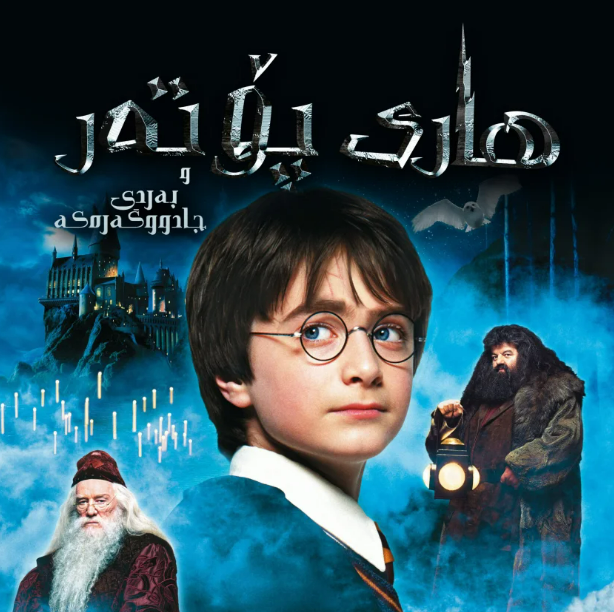As of April 2023, Harry Potter and the Philosopher’s Stone has been formally* translated into 87 languages. Only a handful of books have been translated into more languages, and Philosopher’s Stone may be the only full-length novel** to be fully translated into so many languages. That’s a huge part of the reason enthusiasts of language, literature, and translation have taken to collecting translations of the book, although the type of writing, amazing cover art from around the world, and just plain old Harry Potter fandom are also big reasons.
With translations obscure as Asturian (Harry Potter y la piedra filosofal), Breton (Harry Potter ha Maen ar Furien), Greenlandic (Harry Potter ujarallu inuunartoq), and Māori (Hare Pota me te Whatu Manapou), collectors are always asking: what languages could be next?
Below we take a look at 5 of the most likely contenders for a Harry Potter translation and explain the reasons why they might be the next language to enjoy a translation (as well as some of the obstacles that may prevent those translations from coming about).
Amharic
Amharic boasts some 50 million speakers, primarily in Ethiopia where it serves as the primary language of instruction and, until 2020, it was the country’s sole official language. There are also high concentrations of Amharic speakers in Israel and in some parts of the United States. An Amharic translation, whose title might be ሃሪ ፖተር እና አስማተኛው ድንጋይ (Häri Potär əna äsmatäñaw dengay), would have to go up against at least one unauthorized translation already circulating in Ethiopia, though.
Kurdish

The number of Kurdish speakers is not known, but reasonable estimates place the number between 20 and 40 million. Kurdish speakers are highly literary, and it’s likely that a Kurdish translation of Harry Potter would be highly marketable in Turkey, Syria, Iran, and Iraq where Kurdish is spoken. But it’s the location of Kurdish speakers that may actually be one of the biggest obstacles: the Kurdish market spans four countries, and awarding distribution rights would be difficult in any of those four countries, let alone all of them. The best bet for a Kurdish translation, for what it’s worth, would be in northern Iraq in the Sorani dialect. One possible title may be هاری پۆتەر وبەردی جادووگەرەکە (Harî Poter wiberdî jadûger eke). In Turkey, in the Kurmanji dialect, the title would be Harry Potter û Kevirê fîlozof and written in the Latin alphabet.
Swahili
Swahili is a favorite among collectors, in part because it’s the most widely spoken language that is native to Africa. Possible titles include Harry Potter na Jiwe la Mchawi or Harry Potter na Jiwe la Mwanafalsafa. But the countries where Swahili books are most often published, Kenya and Tanzania, share a problem with India, South Africa, Pakistan, and the Philippines—countries where translations of Harry Potter have been notoriously difficult for publishers to sell. A huge portion of the literate population in these countries can read English, and they would probably prefer to read Harry Potter in English.
Neo-Aramaic or Classical Syriac
Speakers of Neo-Aramaic are a small but strong community with a rich literary tradition that spans millennia. There are some 1–2 million speakers worldwide, who have largely been dispersed from Iraq in recent decades. But there’s been tremendous and decently funded effort to keep the language alive. There’s no doubt that a Harry Potter translation into Classical Syriac, the literary dialect, would sell tens of thousands of copies. The U.S.-based Gorgias Press would surely commission a great translation if the Blair Partnership offered it the rights. A possible title would be ܗܐܪܝ ܦܘܛܪ ܘܟܐܦܐ ܕܦܝܠܘܣܘܦܐ (Hāri Poṭer wə-kipā də-pilosofā).
Scottish Gaelic
Scottish Gaelic made the list not because the language and market are strong—fewer than 100,000 people in Scotland can read Scottish Gaelic—but because there was actual effort in this direction at one point. According to Potterglot, Bloomsbury had plans to publish a Scottish Gaelic translation in 2006 and even registered an ISBN and a title: Harry Potter agus Clach an Fheallsanaich. It never came to fruition because the publisher couldn’t find a translator. But we know that if they ever do find one, a lot of people who don’t know Scottish Gaelic would definitely be buying copies!
Footnotes
* This number only includes translations that have been legally authorized. If we count unauthorized translations, the number of languages falls somewhere around 95. Why make the distinction? Because while unauthorized translations are often done well, some of them are so sloppy that they can’t really be called a translation. Authorized translations are typically higher in quality: they are usually translated by experienced professionals who are good writers and go through a formal editing process to ensure clarity and consistency.
** Much shorter novels like Adventures of Pinocchio, Alice in Wonderland, and Kahlil Gibran’s The Prophet have been translated into more languages, but none of these exceed 30,000 words. (For comparison, Philosopher’s Stone is 77,000 words in length.) Portions of Don Quixote have been translated into nearly 150 languages, but if we only count languages that have a translation of the whole novel, then that number falls below 80 (and possibly even under 50). That’s no less impressive, though, given that Don Quixote has some 350,000 words in Spanish.

Leave a Reply